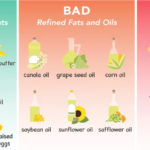
Vitamin D-Let there be sunlight!
Low on energy?
Chances are if you live near the great lakes or the north-eastern part of the United states then you have low vitamin D. I have had low levels of Vitamin D as long as I can remember and always been tired this goes alongside with thyroid issues. We lack sunlight in this part of the country and it really does make a big difference in how you can feel day to day!
What is Vitamin D?
It is a fat-soluble vitamin that has long been known to help the body absorb and retain calcium and phosphorus; both are critical for building bone.
Vitamin D is more important than you think:
That is because Vitamin D plays an important role for functions in the body.
It reduces muscle and joint inflammation and promotes cell growth. It’s also very hard to get enough from our food sources alone. Studies show that vitamin D can help reduce cancer cell growth and help control infections.
The immune system protects you from infections and illnesses. Vitamin D can naturally boost it by providing energy to immune cells, so they work more efficiently. In fact, these cells have a particular receptor just for Vitamin D absorption.
Of course there isn’t a substitute for eating a healthy balanced diet and exercising regularly, but Vitamin D can aid in weight loss. People with high level of the vitamin are less likely to become obese. They might also have an easier time losing weight because Vitamin D keeps the fat levels in their body lower.
For your body to absorb calcium, you need to consume Vitamin D. The two work together and are both essential for healthy strong bones especially as you age.
Also, vitamin D can lower the risk of type 2 diabetes because it helps your body regulate insulin levels by naturally secreting the chemical. People who are hyperglycemic can benefit from the vitamin too.
Anyone else out there just feel better when the sun is out?
That is because the sun is the best natural source of Vitamin D, and it only takes 5-15 minutes of sunlight a few times a week to notice a difference. Get outside and expose yourself to direct sun on your arms and face to soak up this necessary vitamin!
Also, when the sun hits your skin, your brain is triggered to release a hormone called serotonin. Serotonin is associated with boosting your mood and helping you feel calm and focused. This is a big help to people with anxiety and depression. Just think about a rainy day, you don’t feel motivated to get out of bed or do all the normal things in your day because you don’t have that sunlight getting you the serotonin boost you need to get going.
Vitamin D or D3?
There are a few differences between vitamin D and vitamin D3 but the main difference between them is that vitamin D also known at D2 is a fat-soluble vitamin that regulates calcium and phosphorous levels of the body whereas the vitamin D3 is the natural form of vitamin D produced by the body from sunlight.
If you would like to know more about the difference between D2 and D3 please click here.
How to get more Vitamin D3…
1. Supplement:
Vitamin D comes in IU’s (international unit, a form of measuring) dosage’s range anywhere from 400 IU or 50,000 IU. I personally take 10,000 IU every morning, Josh takes 5,000 and have been doing this constantly for over a year now.
I’m not very good at keeping up on my ordering so when the bottle runs out and I have a gap without vitamins for a few days- a week then I definitely notice a difference.
I am not a doctor so I can’t tell you how much Vitamin d you need but if you live near me I’m sure your levels are low and you would benefit from taking at least 1,000-5,000 IU a daily.
Of course like all things, too much can be harmful. All good things come in moderation.
Taking a capsule supplement is easier for your body to break down to digest and absorb than a gel pill or hard pressed tablet.
If your levels are super low where you are very vitamin D deficient then you might need a vitamin d infusion. This is done by placing an IV line usually in your arm Vitamin D is then infused in the IV bag and in turn infused to the body. The IV vitamin D drip is introduced to the body via IV bypassing digestion by the liver and thus is absorbed at much higher concentrations.
2. Get outside more!
3. Consume Foods that have high amounts of Vitamin D
- fatty fish and seafood
- mushrooms,
- Whole eggs
- fortified milk, tofu, cereal and orange juice
- liver
4. UV light
5. Go tanning
This might seam odd tanning has got a bad rap (like all things if done in moderation it’s OK). When I was in high school and feeling like I was hit by a truck because of all my unknown issues my doctor told me to try a tanning bed; I did and loved it! It made me happy and made my body and even bones feel so good especially in the winter! I still now go once or twice a week November- April.
D3 + K2 = Best absorption
Vitamin D3 and Vitamin K2 work together synergistically with each nutrient aiding the other in its functions. These vitamins impact almost every system and function in the body. Most of the research supports the dual benefits that has been shown to effectively support overall heart and cardiovascular health, respiratory and immune system function, and also with helping to maintain strong bones.
Increasing one’s intake of vitamin D without enough vitamin K can cause an increase in calcium levels without the ability to use it effectively, which raises the risk of depositing calcium in arteries and soft tissue. Therefore, Vitamin D3 should always be taken in combination with vitamin K2.
When shopping for a vitamin D3 supplement make sure it also says vitamin K2 on the bottle.
Symptoms of Vitamin D deficiency may include:
- Not sleeping well
- Fatigue and muscle weakness
- Bone pain or aches, joint paint
- Depression or feelings of sadness
- Hair loss or brittle hair and nails
- Loss of appetite
- Getting sick more easily, frequent infections or illnesses
- Slow wound healing
Hypothyroidism and low Vitamin D
- Studies show Patients with Hashimoto’s thyroiditis had significantly lower vitamin D.
- It was found that the odds of developing hypothyroidism were significantly higher among patients with intermediate and deficient levels of vitamin D.
- We found that vit-D deficiency and vit-B12 deficiency were associated with autoimmune hypothyroidism.
Other Autoimmune Disorders
Vitamin D has a key role in modulating immune function with important consequences on health maintenance and disease occurrence, particularly autoimmune disorders. Low serum levels of 25(OH)D have been associated with increased risk of autoimmune disease onset and/or high disease activity.
*This makes so much sense to me, we talked bout Vitamin D helps to fight inflammation and infections. Well autoimmune disease start to form in our body because we have too much inflation. So if you Vitamin D levels are low then in creeps the inflammation which causes the autoimmune disease to thrive!
I know that was ALOT!
Let’s sum it up in a simple way, you probably need more Vitamin D in your life. Whether it is from the sun, food or supplements or all the above.
If you are experiencing any symptoms listed above you can try to take some over the counter Vit-D3/ K2 or you could ask your doctor to run some blood labs to check your levels.
“Normal range” could be anywhere 20-40 ng/ml but optimal range (where you want to be) is 50-80 mg/ml.
If you have any autoimmune or thyroid issues you need to add more Vitamin D into your life.
As always feel free to leave question or comments below!
I hope you catch some sun today!
Kat





2 responses to “Vitamin D-Let there be sunlight!”
You nailed it with a great combo of information and personal experience! In all my years suffering from Lupus, which has affected my heart, I’ve NEVER been told about K2. I am vitamin D deficient and taking prescribed supplements for that, but I’m going to have to look into the K2 because I feel that it would really help me! Thanks for the information!!
yah doctor never told me that either.. crazy! worth checking into!